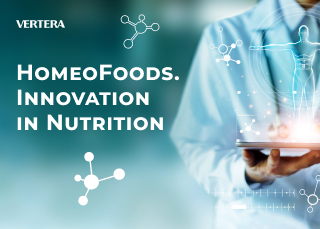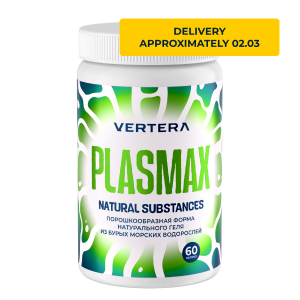
Homeofoods. What does the preventive medicine of the future count on?
What can replace medicines? Olga Sergeevna Korneeva, Holder of an Advanced Doctorate in Biological Sciences, Head of the Department of Biochemistry and Biotechnology at the Voronezh State University of Engineering Technologies (VSUET) writes about homeofoods, one of the main modern trends in preventive medicine.
Medicines or health?
Pharmacology in its modern form appeared at the beginning of the 20th century. Impacting the body from the outside, it used the experience accumulated over the centuries of observing and studying the body responses to certain chemicals.
Pharmacology (in Greek: pharmacon meaning drug) is the study of how chemical substances of biological and non-biological origin interact with human and animal organs.
The rapid development of chemistry and biology and, most importantly, new technologies for the industrial synthesis of such substances made them a tool for the mass normalization of well-being of the population of industrial countries in 1920s and 1930s.
This approach was ideally suited to the healthcare principles of the time. Synthesized drugs are cheap, easy to produce, affordable, and effective. However, over time, with the development of medicine and the improvement of the quality of life, the perception and assessment of the consequences of this approach have changed.
"Cure the disease and kill the patient", "side effects", "feed with pills" – everyone has heard such phrases from friends (as well as from many doctors). Why? Because even doctors admit that the normalization of well-being has replaced the concept of healing.
How we cure today
The mechanism of the inhibitory action of modern pharmaceuticals is as follows:
- Stimulation. This is an artificially induced body response in the form of activation of its certain functions. For example, we can increase the production of a certain hormone or cell type (T killers when it comes to cancer or immune diseases), etc.
- Suppression. On the contrary, it is the inhibition of certain body responses. The simple example is an anesthetic chemical that inhibits transmission of nerve impulses, or antibiotics.
By combining these two types of actions, you can achieve certain results. However, it is important to bear in mind that the body always resists chemicals. This leads to the failure of internal processes in the body systems, chronification of diseases, and numerous side effects. The disease forced deeped into the body is doubly dangerous.
Since the beginning of 2000s it has become obvious that the common attitude of modern humans to medicines needs to be changed. First of all, this is due to the uncertainty of their effects when the benefits hardly exceed the harm caused by a medicine to the body, especially with uncontrolled intake.
Personalized treatment, a new direction in the medicine, has emerged. These are essentially laboratory studies of the effectiveness of drugs prescribed for certain diseases. The simplest one is a culture and sensitivity test. But, unfortunately, the mechanism of action of drugs has not changed.
Taking pills whenever you feel pain is a habit based on the unbalanced body and matrixed into the muscle memory. This unbalance is maintained for decades without causing any anxiety until it is too late.
The uncontrolled intake of dietary supplements is also common, whereas in fact they should be prescribed only by a doctor and only in cases of critical deficiency.
What is the danger of drugs and uncontrolled intake of dietary supplements and vitamins?
To answer this question, we should just remember the basic principles of physiology.
One of them is that the body is a system with a self-regulating internal environment. The easiest and clearest way to show it is to compare it with a gyroscope, which always returns to the equilibrium position.
The French physiologist Claude Bernard was the first to describe the concept of regulation of the internal environment (1849), and the American physiologist Walter Cannon named it "homeostasis" (the concept of body autoregulation) (1926). [1,2]
What is homeostasis? Simply said, this is the state of optimal functioning of the body, that equilibrium point where each cell functions in the best possible way. [3]
It is very easy to get the body out of this state with an overdose of chemical substances,while it is really difficult to return this "gyroscope" to its equilibrium position. This leads to metabolic disturbances, immune system impairments, chronic gastrointestinal pathologies due to disturbed microflora, etc.And, in general, any disease is a consequence of one or another unbalanced body system.
So, it turns out that medicines are also a disease risk factor, right?
The body knows better
It all depends on which of the evils is the lesser. Of course, there are situations when the body cannot resist the disease. Then the drug therapy is necessary, even though it harms. However, it is critical to discontinue the treatment correctly, to restore the internal balance.
And in most cases, the best way to cure is to trust the body's autoregulation mechanism. Judge for yourself: our body
- Understands better than any professional where the "gyroscope" has deviated
- Knows how and with what to restore its balance
- Can compensate for the deviation of the "gyroscope" (compensate for the harm caused to the body)
A number of recent studies, books and publications by scientists (such as G. Church) prove that this approach is becoming the basis of modern personalized medicine and the concept of a healthy lifestyle in developed countries.
"Give the body what it needs and let it cope with the problem itself", say the representatives of physiology and medicine, which will develop in this direction in the next 30–50 years [4].
What can replace medicines?
Obviously, food is the most natural (and therefore effective) way to supply the body with the essential substances. However, not any food can return the body to its optimal, balanced condition, especially if we consider the origin of modern food and how it is cultivated and produced.
Food that is able to give the body everything it needs to be in its optimal condition, to maintain the balance of its organs and systems is called "homeofood" (derived from homeostasis and food). Thus, in fact, such food is a "cure to all diseases".
Homeofood is a term first proposed by the biochemist Anatoly Khitrov, Head of the Department of Biochemistry and Biotechnology of the NPO BIT. With the advent of this concept, the answer to the question whether food can replace medicines becomes affirmative.
What is unique about homeofoods?
A few properties and characteristics of homeofoods that will allow you to find the right one for regular use.
- All-natural composition. Humans are part of the nature, and their bodies can effectively recover only when using products created by nature.
- Maximum value. It is important to understand that homeofoods are not just useful plants or products of animal origin.
Homeofoods are products with the maximum benefits of natural raw materials achieved thanks to their composition and, most importantly, advanced technologies. They allow our body to maximize the absorption of useful substances since we cannot fully absorb many products due to the fact that we do not naturally have enzymes to break them down.
Simply said, homeofood is the healthiest food for humans.
Let's take an example. Everyone knows that brown seaweed is one of the healthiest food products for the human body and well-being due to the fact that it contains more useful substances than any other plant on the planet. However, laminaria in its natural form, dried or shredded into a salad, is not a homeofood because of its poor digestibility. We can only absorb it by 10–15% as it has a dense shell that our body cannot break down.
But laminaria can be turned into a homeofood – that is, all its useful substances can be made fully digestible for the body. To do this, it should be processed so that the cellulose in the cell wall of the plant, which humans cannot digest due to the lack of the appropriate enzyme, will no more prevent the body from accessing all the substances contained in the brown seaweed. This process can be performed using the patented technology of enzymatic hydrolysis owned by one of the Russian enterprises, NPO BIT. In this case, our body easily absorbs the entire complex of valuable substances of this plant with a unique composition.
The resulting product is very similar to human blood plasma, which allows us to conclude that it is essential in the modern diet.
- It is suitable for all age groups. The body's homeostasis system needs for self-regulation, recovery and self-healing at any age. This is the essential principle of personalized homeostatic medicine, which understands perfectly well that each body is one of a kind, it has unique characteristics and a mechanism that we can use to achieve our goals. They, in turn, depend on the age.
- Due to the high digestibility of useful substances, homeofoods promote the homeostasis and provide it with a perfect tool to prevent diseases instead of relieving their symptoms.
Homeofoods make it possible to achieve this in the most natural and effective way. Adhere to the principle of "food as a medicine", and you will have good health at all ages!
References
1. Cannon, W.B. The Wisdom of the Body. — New York: W. W. Norton, 1932. — pp. 177— 201.
2. Cannon, W. B. Physiological regulation of normal states: some tentative postulates concerning biological homeostatics // A Charles Riches amis, ses collègues, ses élèves (FR) / A. Pettit. — Paris: Les Éditions Médicales, 1926. — p. 91.
3. Yu. V. Natochin, Yu. V. Irkhin. Homeostasis. Great Russian Encyclopedia [in 35 volumes]. Ch. ed. Yu. S. Osipov. — Moscow: Great Russian Encyclopedia, 2004–2017.
4. Jain R.R. Personalized medicine, Decision Resourses Inc., Waltham, MA, USA, 1998



